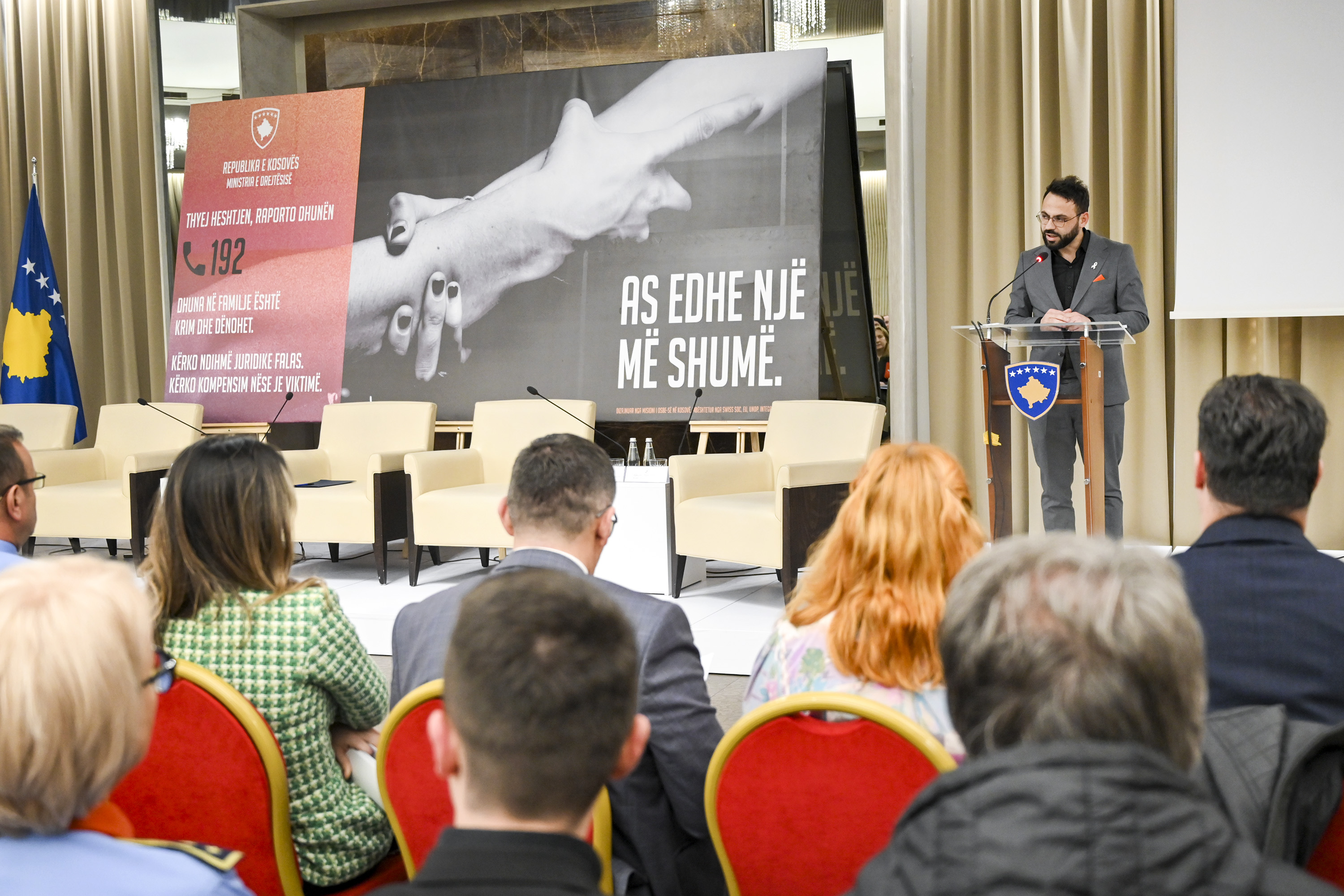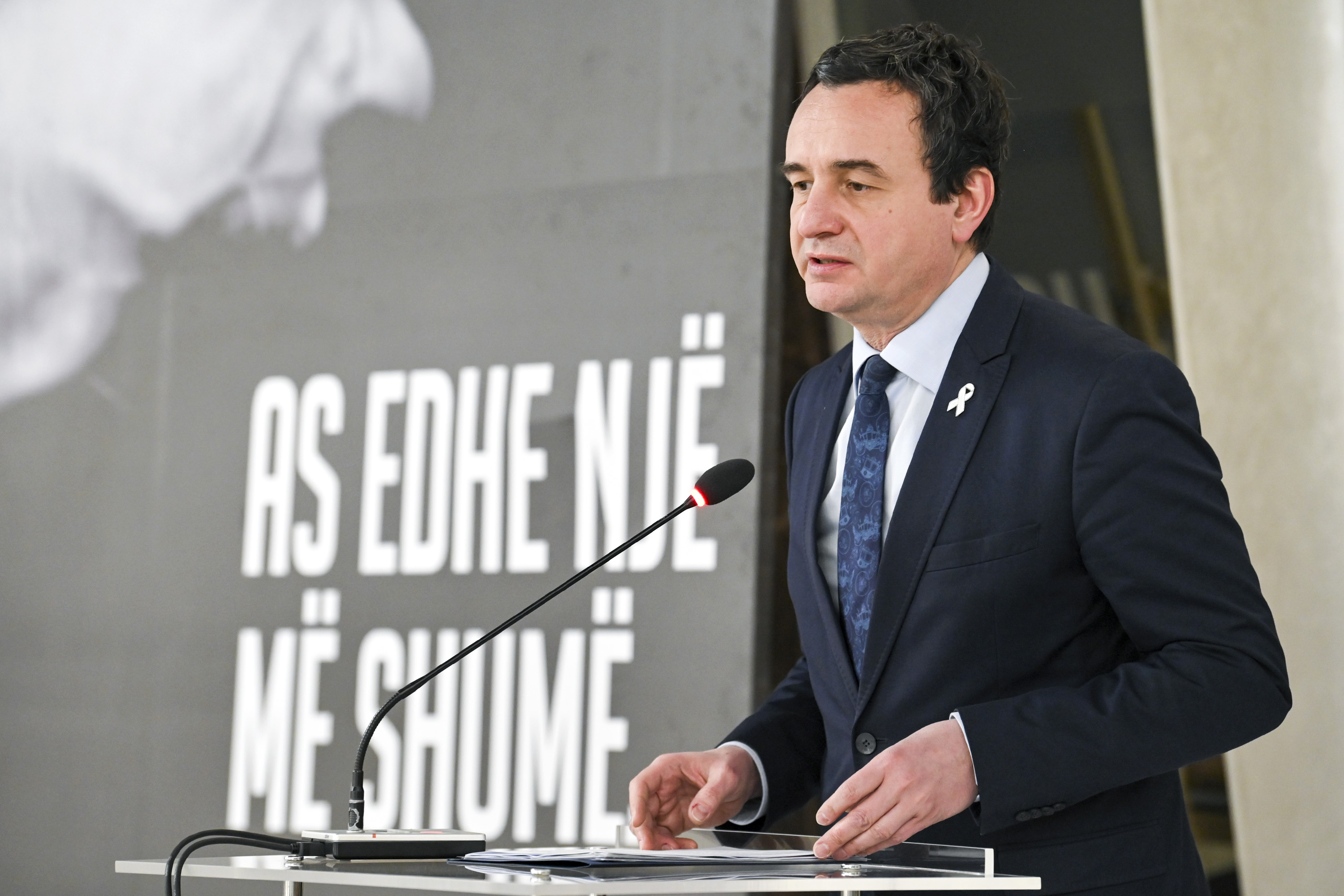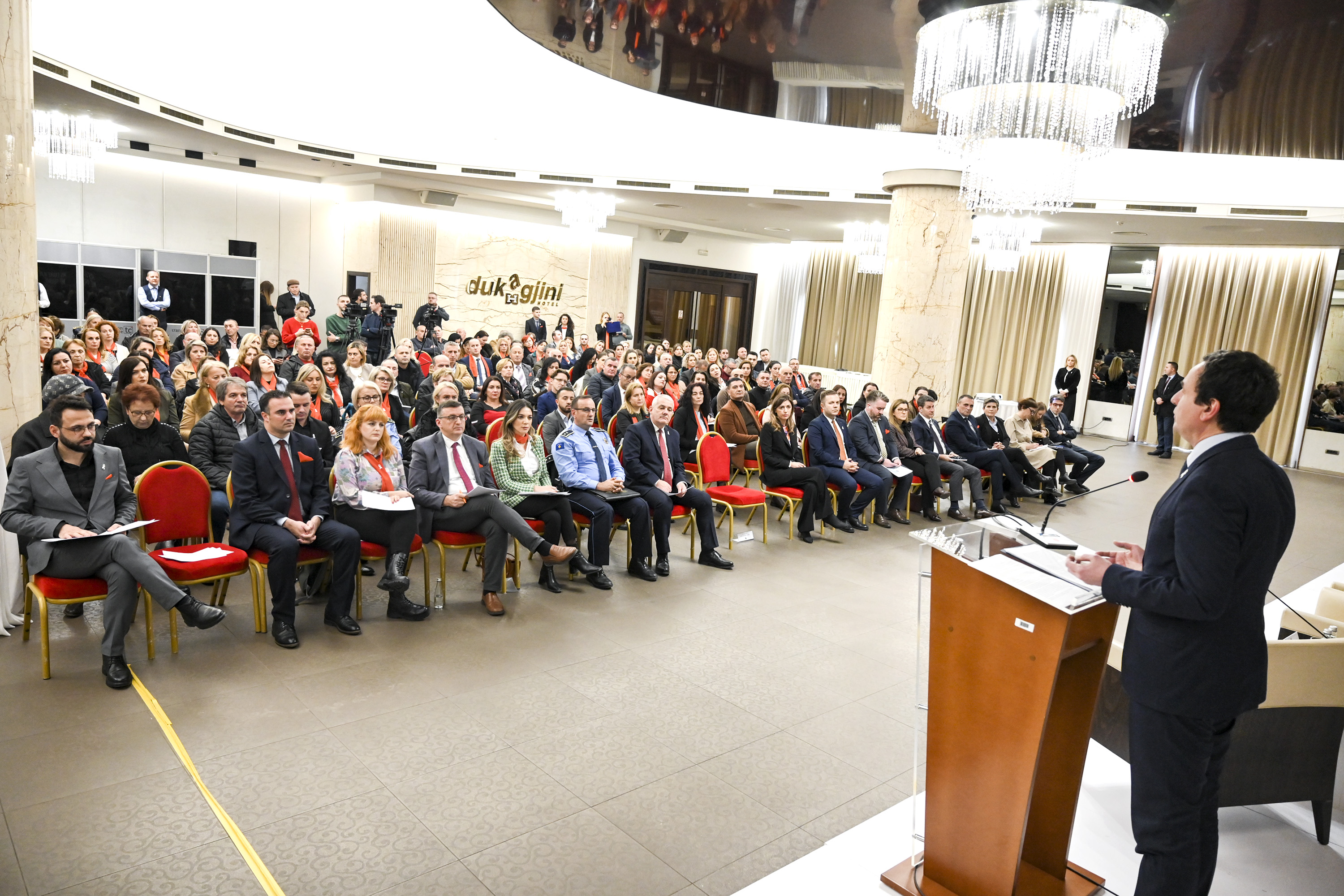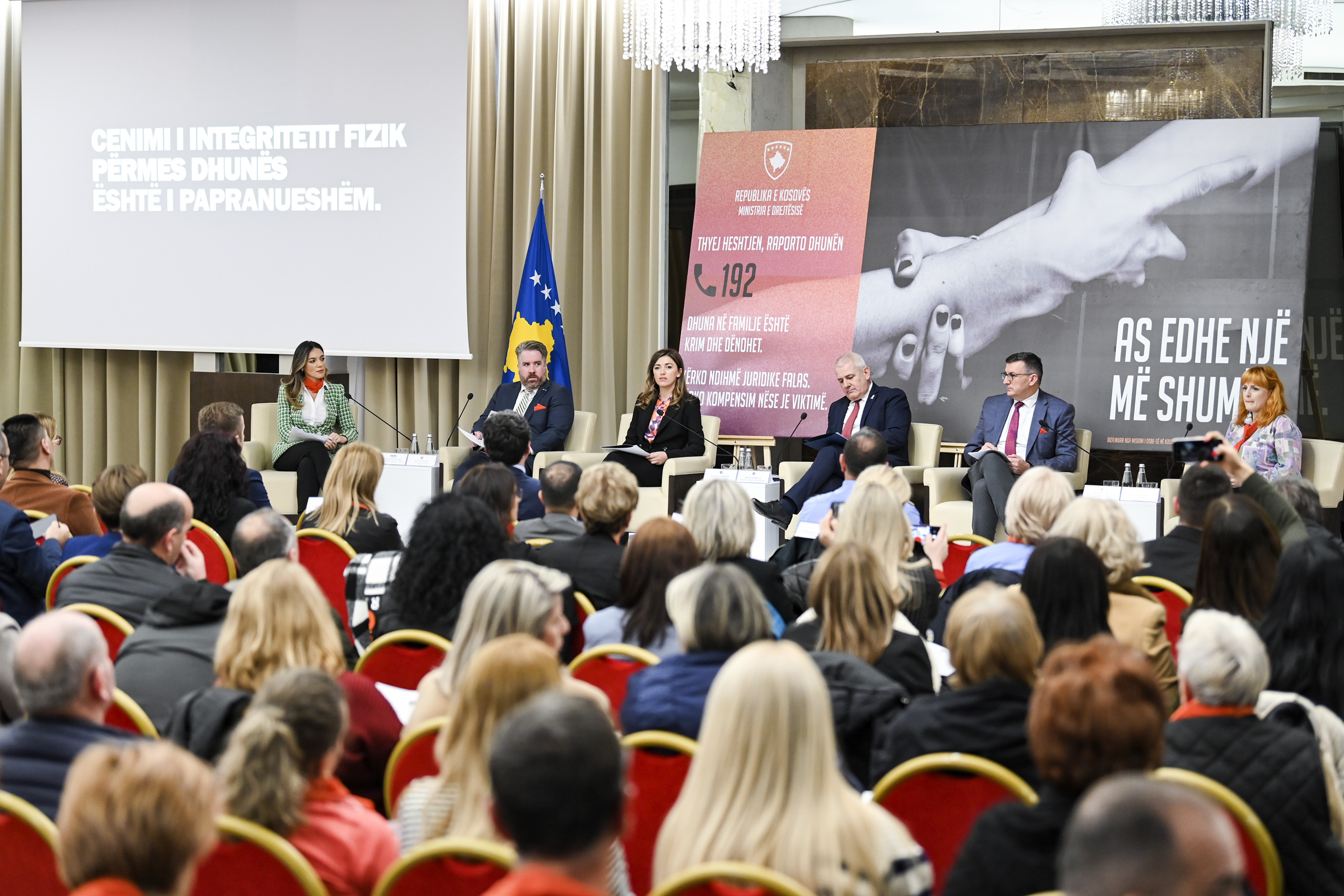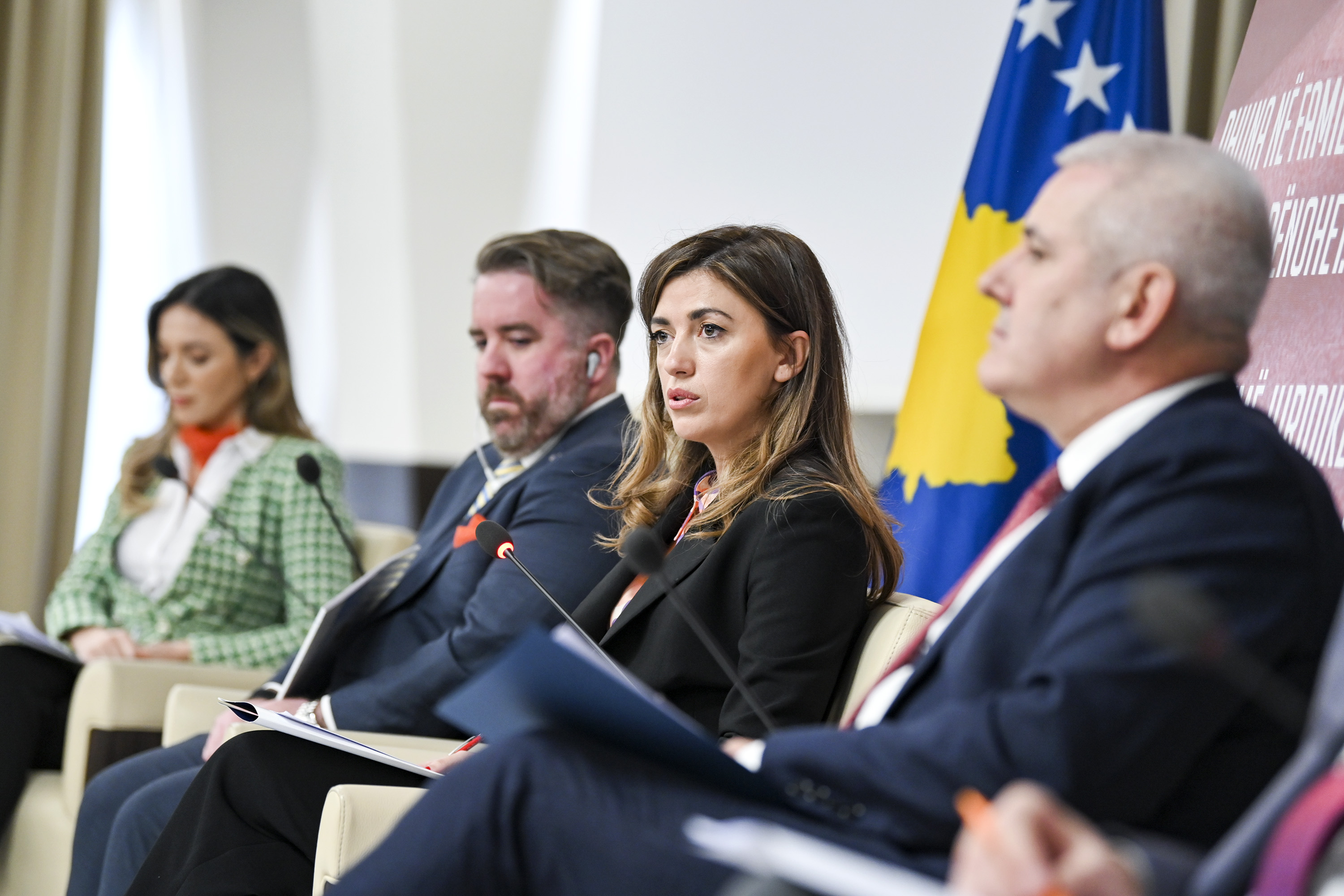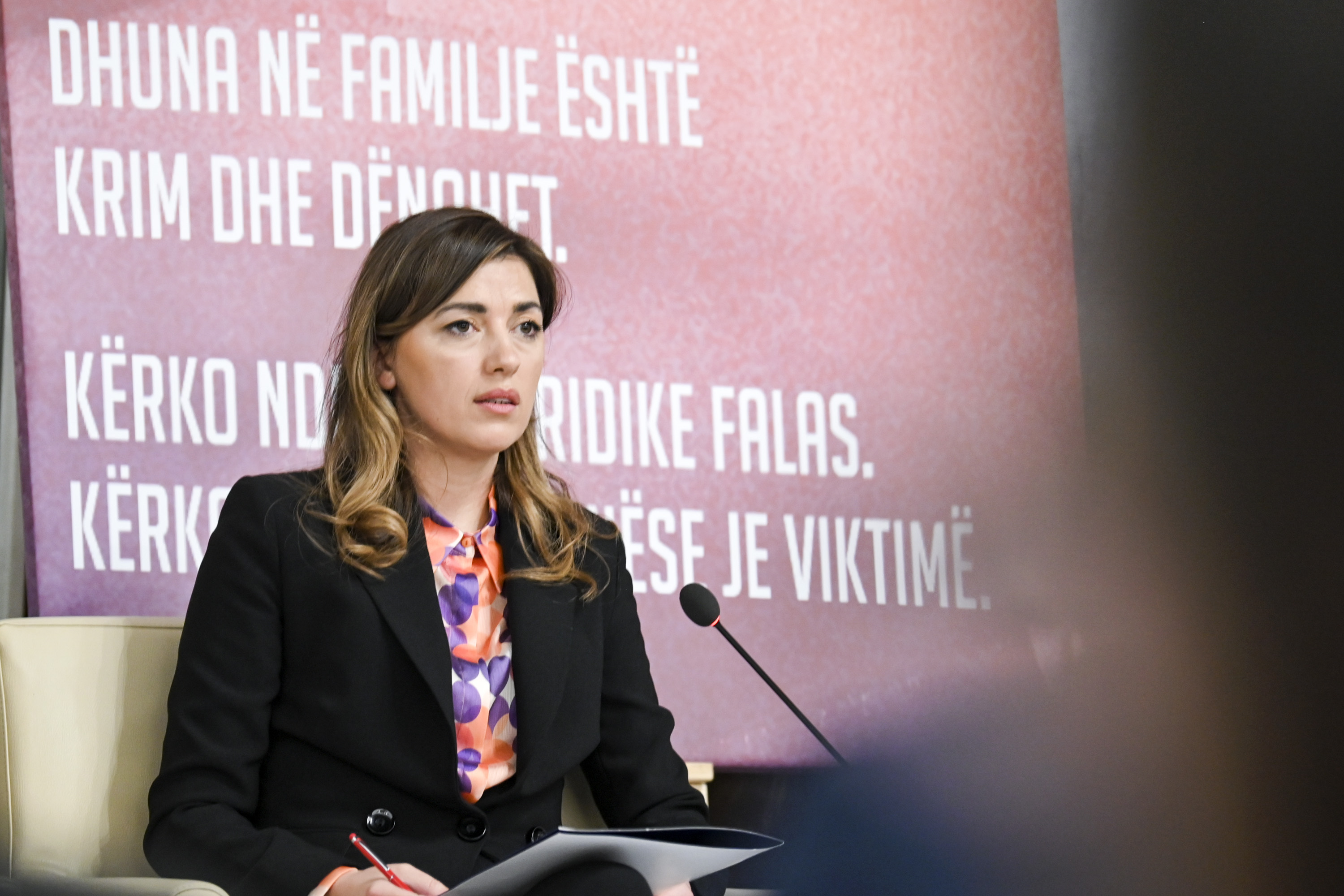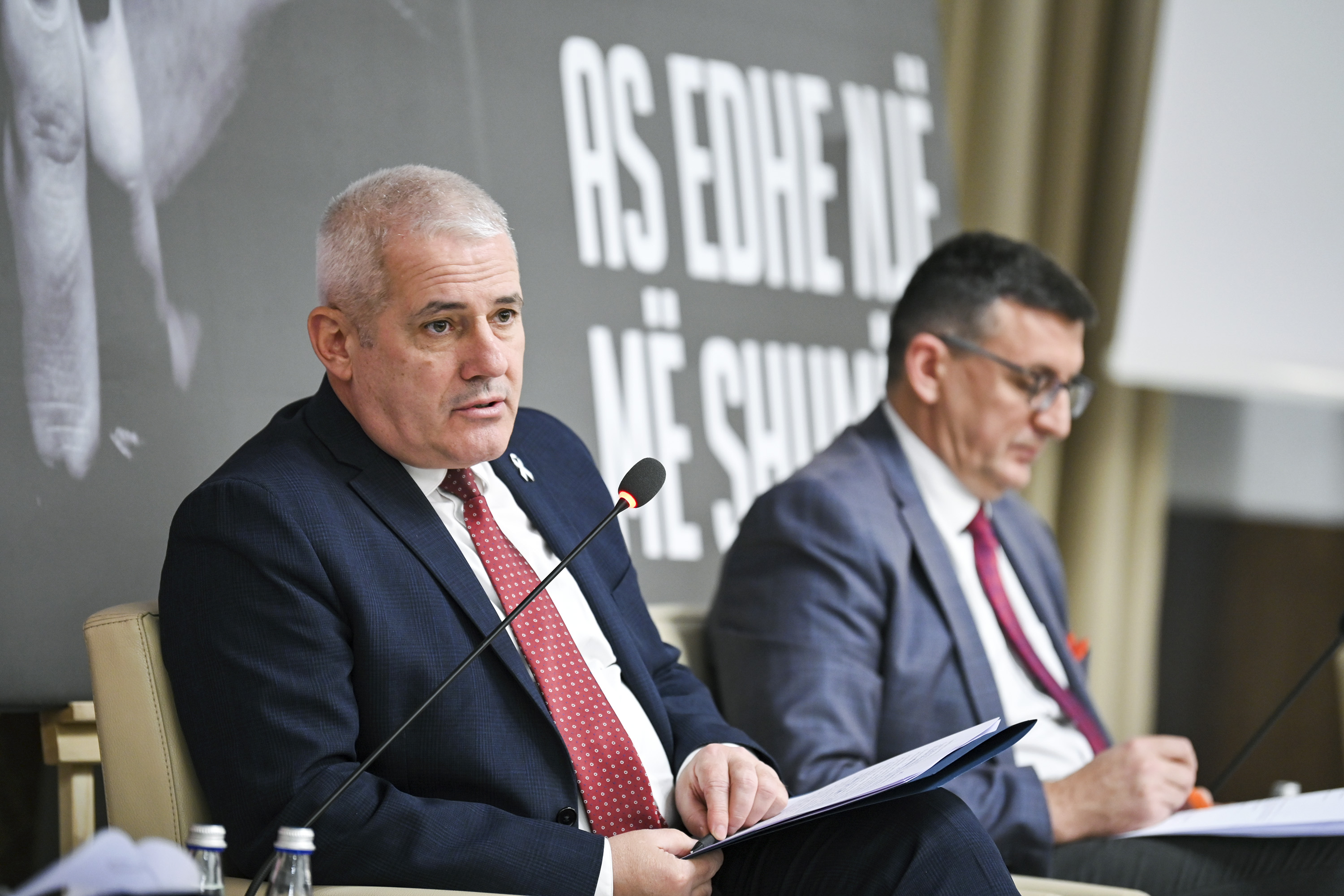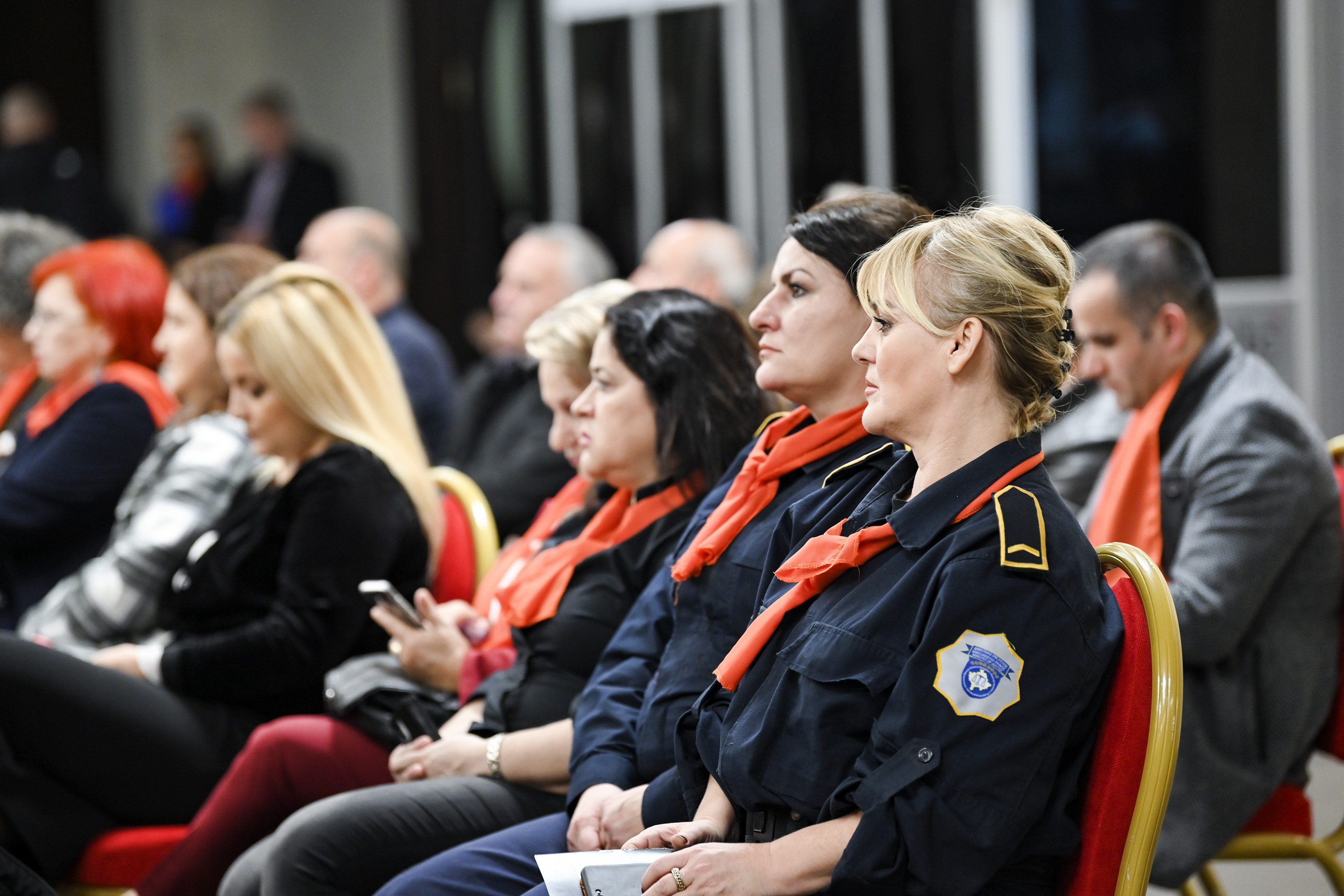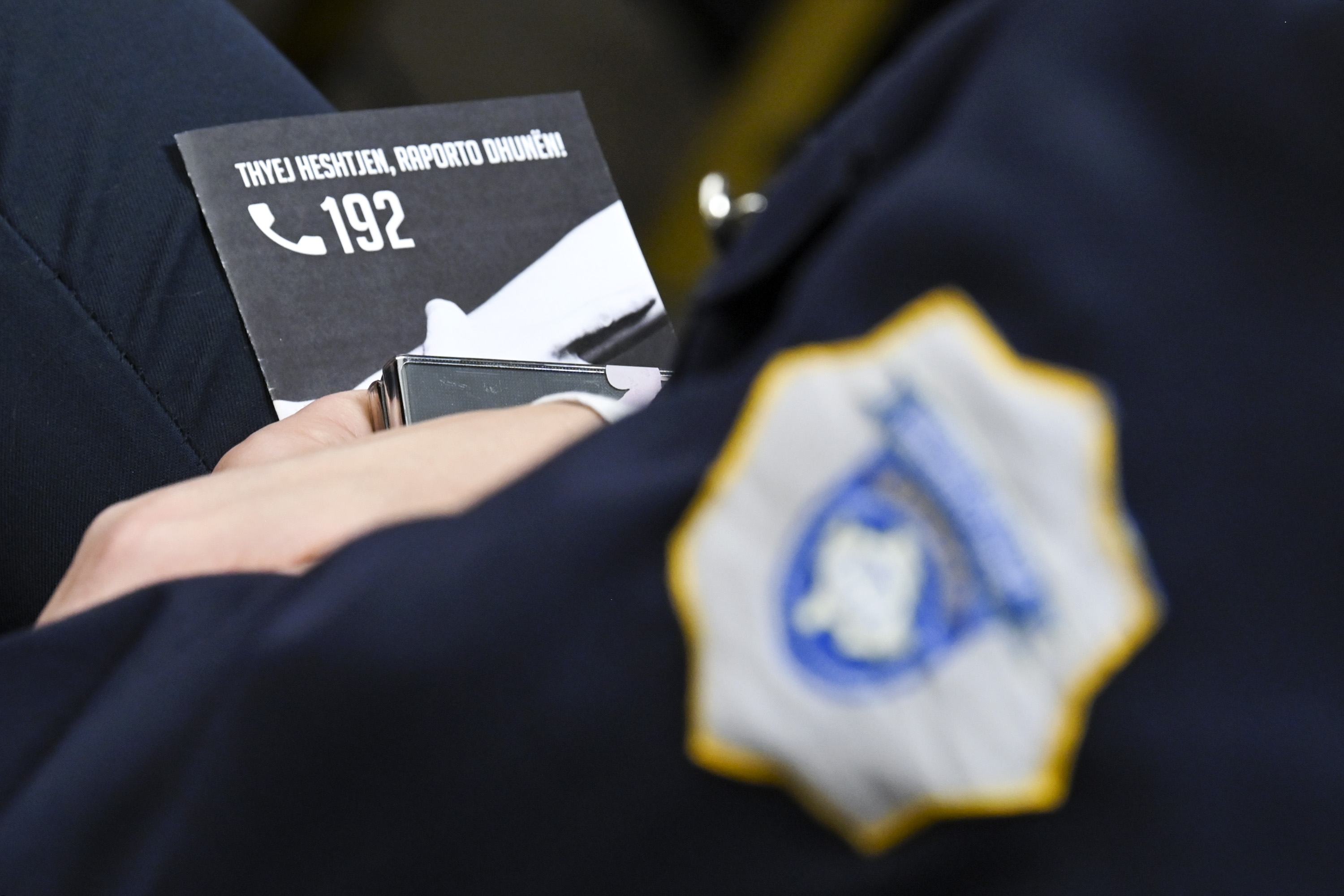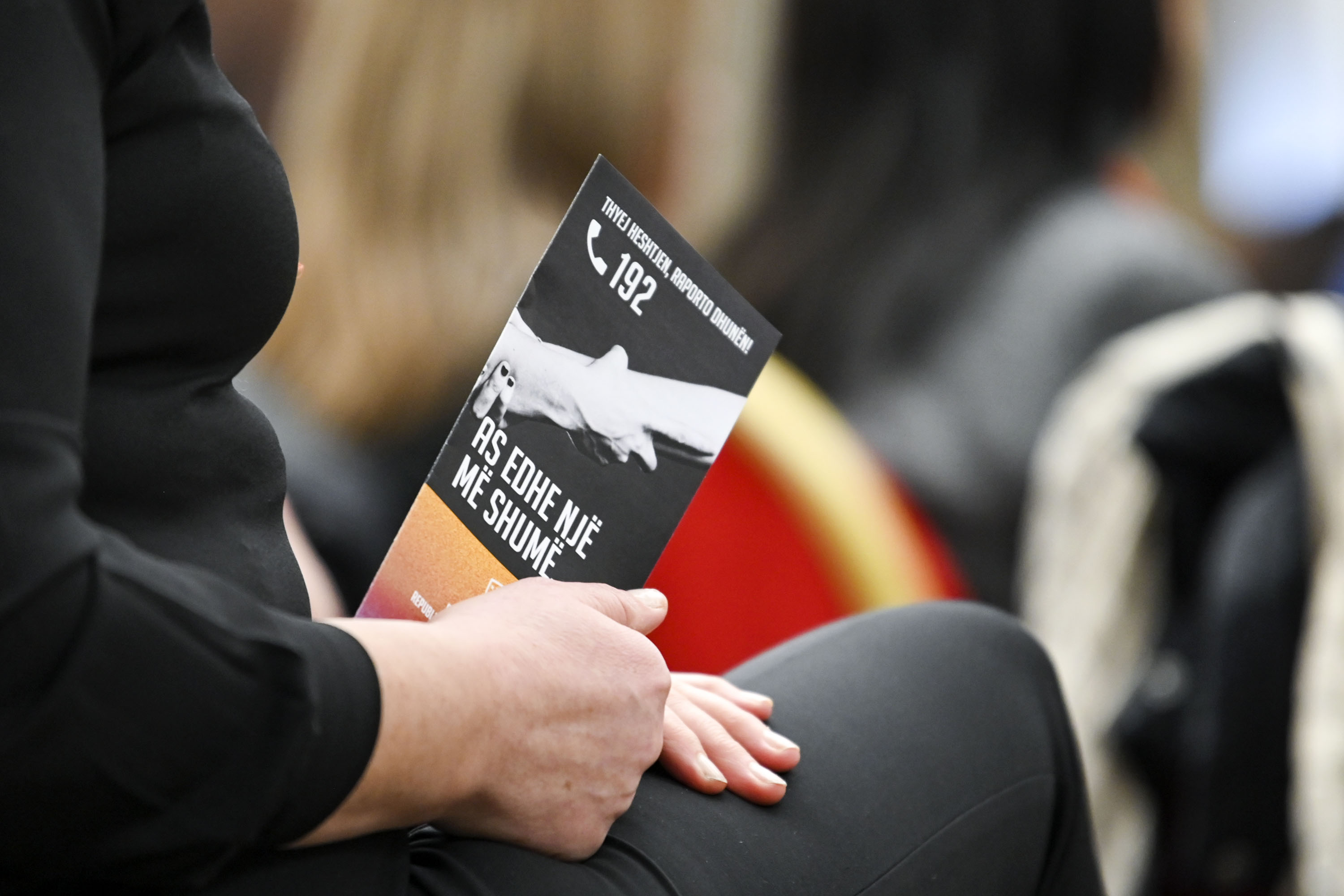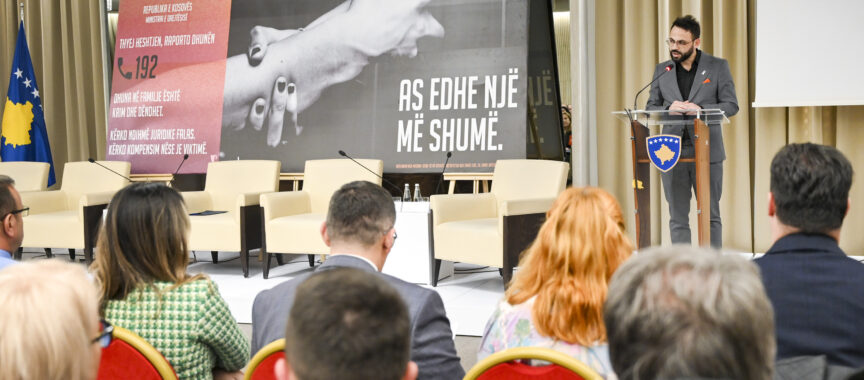Peja, November 29, 2022
In the framework of the global campaign “16 days of activism against gender-based violence”, Prime Minister of the Republic of Kosovo, Albin Kurti, participated in the opening of the table organized by the Ministry of Justice.
Initiatives and legal changes from Government, in addressing gender-based violence, and handling of these cases by justice and security institutions, were discussed with police, victims’ defenders, representatives of shelters and social work centers.
Our government has shown serious commitment and concrete actions in the light of combating domestic violence and gender-based violence, understanding the unfortunate consequences of these phenomena in our society, said Prime Minister Kurti.
We have created mechanisms that follow crime and count on an independent and efficient judicial system to do its job. Through social activism, our obligation is to prevent domestic violence and gender-based violence’, said Prime Minister Kurti, while making it clear that as a state, through efficient prosecution and a wise and steadfast judiciary in decision-making, we must send the message that violence is persecuted, judged and punished in the most powerful way.
Government has prioritized the fight against gender-based violence, that of domestic violence and violence against women. The Ministry of Justice has defined the prevention and addressing of domestic violence and violence against women as one of 5 strategic objectives, among which is the harmonization of local legislation with Istanbul Convention, Prime Minister emphasized.
At the end of his speech, Prime Minister demanded that as a society, institutions, citizens, we should not allow even one more victim in our battle against gender-based violence and domestic violence. “Not even one more”.
Prime Minister Albin Kurti’s full speech:
Honorable Minister of Justice, Mrs. Albulena Haxhiu,
Honorable Minister of Internal Affairs, Mr. Xhelal Sveçla,
Honorable Deputy Minister of Justice, Mr. Blerim Sallahu,
Honorable Deputy Minister of Health and Acting Minister, Mrs. Dafina Gexha-Bunjaku,
Honorable Mr. John Hanley, representative from American Embassy in Kosovo,
Dear Ms. Erblina Dinarama, head of the “Safe House” shelter in Gjakova,
Honorable Mr. Vebi Mujku, director of the Center for Social Work in the Municipality of Pristina,
Dear Ms. Besarta Breznica, from Kosovo Women’s Network,
Dear representatives of the Police, Centers for Social Work, shelters and interministerial group,
Dear attendees,
Ladies and gentleman,
Sisters and brothers,
Welcome to this important organization, within the global campaign against domestic violence and gender-based violence. This year, for the first time, Republic of Kosovo institutions, namely the Ministry of Justice, are organizing “16 days of activism”.
Dear participants,
Our government has shown serious commitment and concrete actions in light of combating domestic violence and gender-based violence, understanding the unfortunate consequences of these phenomena in our society. So victims are the victims, the victim is our entire society that has victims.
On the very day of opening the global campaign “16 days of activism against domestic violence and gender-based violence”, a woman, a teacher, was barbarically killed by her husband inside the walls of the house, in the place where she should feel safe, not to be afraid of anything.
We cannot allow such violence, within the family, to be repeated. We have created mechanisms that follow crime and count on an independent and efficient judicial system to do its job.
Through social activism, our obligation is to prevent domestic violence and gender-based violence.
But, as a state, through the efficient prosecution and the wise and steadfast judiciary in decision-making, we must send the message that violence is persecuted, judged and punished in the most powerful way.
In this case, I also have to address the unjustified lack of judges and prosecutors today, who play a key role in fighting violence.
In the morning I met the special rapporteur of the United Nations for truth promotion, justice, reparations and the guarantee of non-repetition, Mr. Fabian Salvioli. From that meeting, I came here straight to Peja today.
Our discussion on the aspects of transitional justice and the progress that Republic of Kosovo marks, becoming an example for addressing needs through a victim-centered approach, also touched upon the importance of the work of Special Prosecutor’s Office in the prosecution of war crimes. Mr. Salvioli told me in the meeting that the prosecutor’s office for prosecuting war crimes did not agree to meet him, that is, they refused to meet him, for unknown reasons, as he said, it does no honor to the prosecutors there, nor to the judicial system in whole, and moreover not even to the efforts made on behalf of Kosovo state.
There is nothing that can justify inaction when it comes to justice system bodies, who are paid for this work. The state interest and the efforts of the institutions of the Republic of Kosovo should not be undermined by state institutions themselves.
In our efforts to advance our country, we are one. Our eventual inner discontents should not be our reflection on the world. I believe that all judges and prosecutors of the Republic of Kosovo understand this. For this very reason, such actions, or rather such inactions, should be a reason to reevaluate the approach that Judicial Council and Prosecutorial Council have decided to maintain in relation to Government, and this Government not only governs well, but also according to World Justice Project, a prestigious international organization, it is the second year that we come first in Western Balkans in rule of law terms and second in the world in rule of law improvement terms.
There are eight characteristics, one by one, on the basis of which a country is evaluated in terms of rule of law, and of the 14 Eastern European countries that are not in the European Union, only Georgia is before us. Out of 14 countries, we are second. Of 6 countries of Western Balkans, we are the first, and in the whole world, we are the second for the improvement from year to year and the first in Western Balkans for the second time this year.
To put it, out of eight characteristics regarding rule of law, in only one of them, our northern neighbor is ahead of us. In the other seven, Kosovo is ahead of Serbia, so not only in this case, so not only are we a more democratic country, but at the same time, with the rule of law, we are ahead of the others. Therefore, this should not be damaged, on the contrary, it should be motivated and advanced.
Dear attendees,
Women and girls are often exposed to violence, including domestic violence, sexual harassment, rape, forced marriage, therefore coordinated institutional intervention is needed to combat and prevent these phenomena. Cooperation in topics of such importance is essential, therefore I want to invite all institutions responsible for the prevention and punishment of violence against girls and women to be part of Ministry of Justice initiatives for coordination in terms of drafting adequate policies against violence.
Government has prioritized the fight against gender-based violence, that of domestic violence and violence against women. The Ministry of Justice has defined the prevention and addressing of domestic violence and violence against women as one of 5 strategic objectives, among which is the harmonization of local legislation with Istanbul Convention.
Here, apart from the Government and relevant Ministries, Kosovo Police has an important role, which in most cases is the first contact for the victim; the first phone number that comes to victim’s mind to call is that of Police, therefore this first contact is very important to be not only accessible and qualitative but at the same time efficient for what follows.
The Police Inspectorate has a special role in helping victims of violence; then we also have the Office for Victim Protection and Assistance, which meets with victims immediately after the police respond to a reported case of violence; The State Prosecutor, courts, municipalities and health and social welfare directorates as bearers of local government which are mandated to manage social services in the municipality; social work centers, the Agency for Free Legal Aid, the regional offices of Ombudsperson, but also other respective authorities, which serve this purpose, so it is necessary that each one be at the level of the task and that they all be coordinated with each other.
As aforementioned, mechanisms for preventing and combating domestic violence and gender-based violence have been established and are working. Our professional and moral obligation is to make maximum efforts within our institutions to address the problem, but also to always stay in contact with relevant institutions to coordinate our efforts and actions in the fight against domestic violence and gender-based violence.
We cannot allow repetition of violence cases that shock us all as a society and have consequences from children to elderly.
If we don’t seriously understand our obligation and approach it in a structured way, we run the risk of facing news like this and then we constantly ask the same old question, what happened to us?
We do not need other cases to understand that this phenomenon must be effectively fought all the time, by everyone, everywhere.
We all have responsibilities regardless of position, regardless of how much we love the job we have or what problems we face. Any official may not have a good day at work, but we have to serve citizens, it should not be reflected in the work we do neither in the service we provide.
We know that in our daily life it is difficult to find two identical days. Some days a person is more diligent than on some other days, but regardless of the spiritual, emotional, mental state that each official will have on each day of the week, week of the month, and month of the year, in no way this shall be reflected in the work we do for state and in the service we provide to citizen.
For functions and duties that we have accepted, we must testify with full professional responsibility. As a society, institutions, citizens, we should not allow even one more victim in our battle against gender-based violence and domestic violence. Not even one more.
Thank you very much!
Last modified: December 1, 2022
